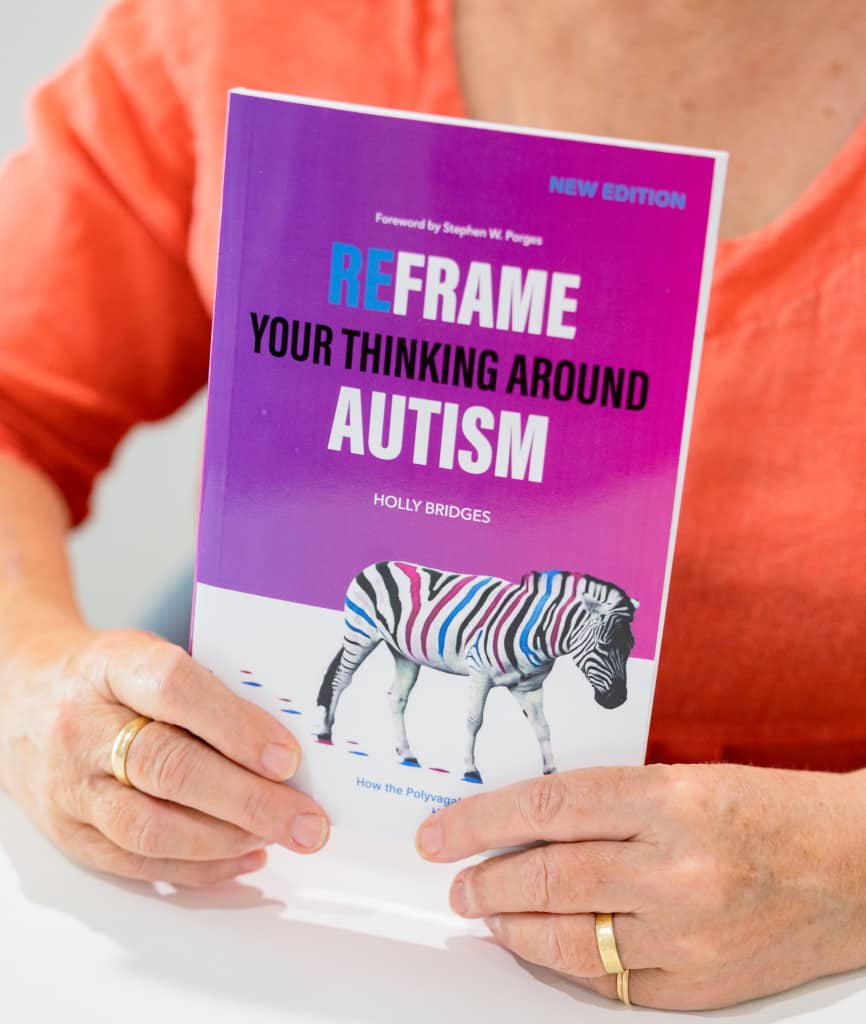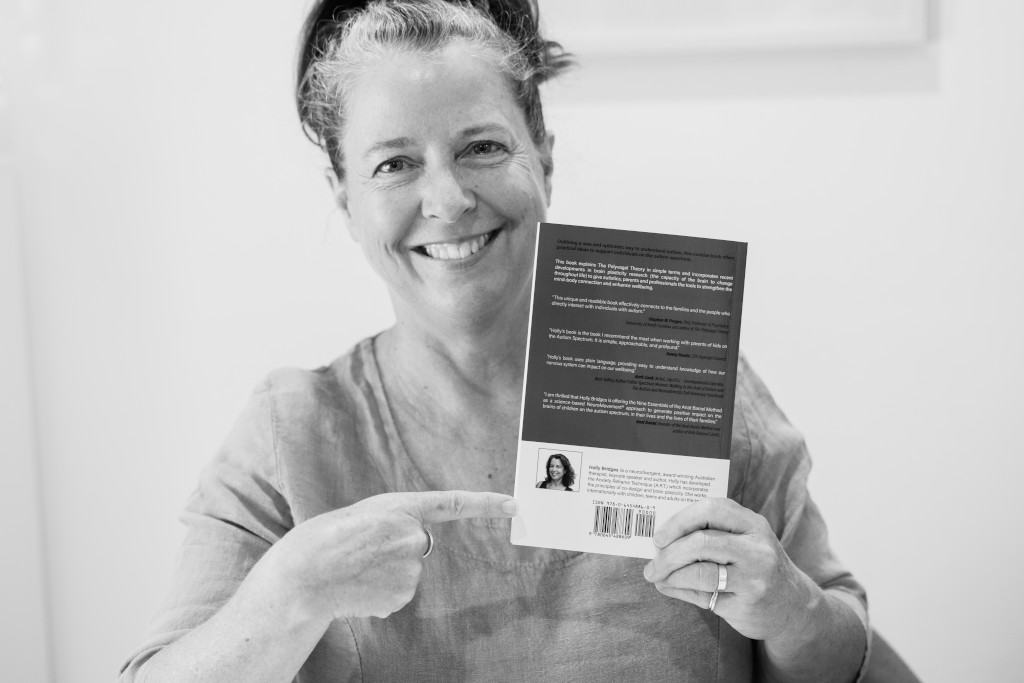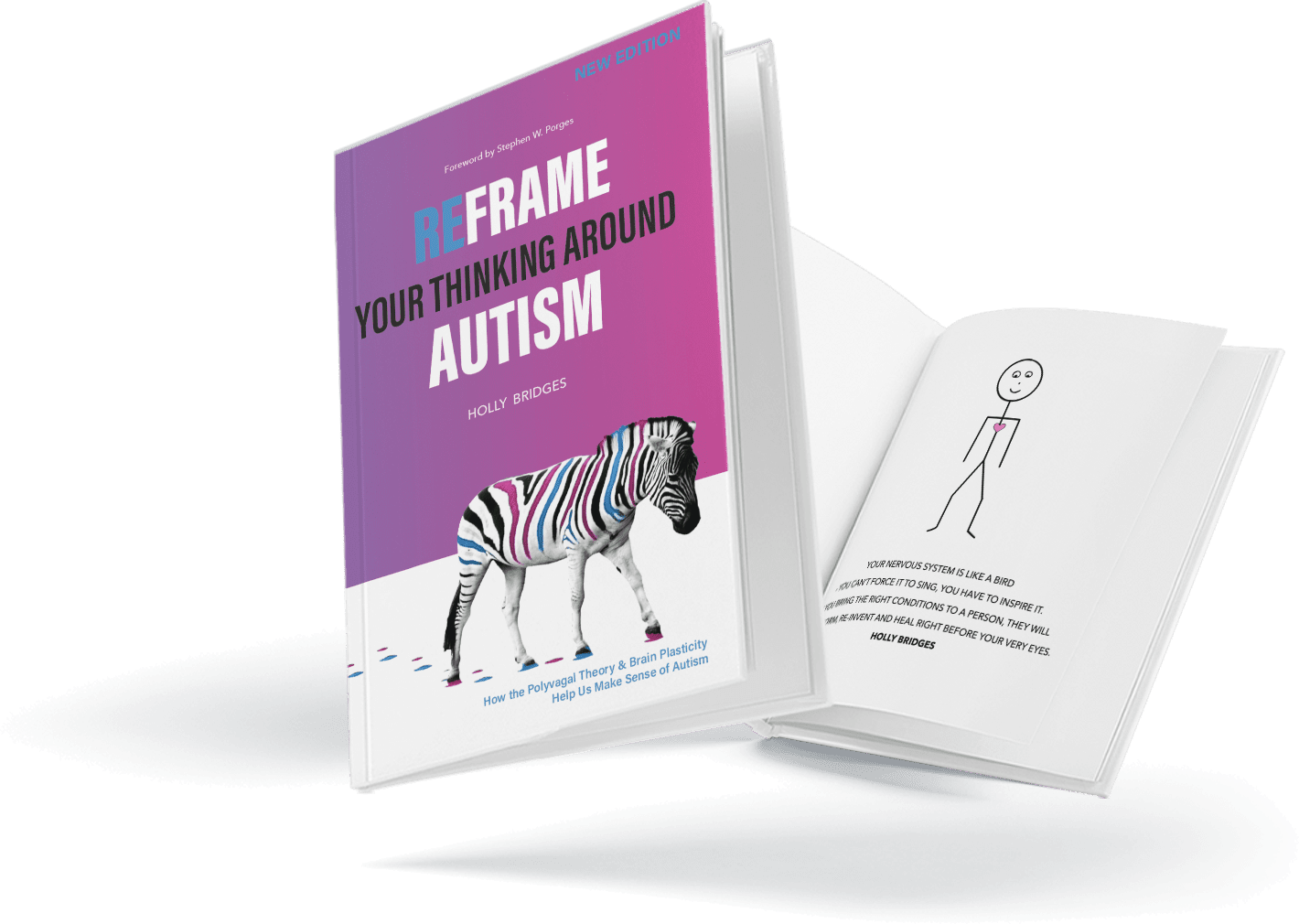Discover a new approach to autism therapy that empowers, enriches and changes lives
This accessible book offers game-changing, practical ideas to support individuals on the autism spectrum—and those that care for them
Autistic Inertia. Gut Sensitivities. Being Easily Triggered. Low Self-Esteem. Difficulty Connecting.
Popular therapies such as occupational therapy, psychotherapy, C.B.T. and speech therapy are based on outdated models and designed around managing symptoms and wanting us (or our patients/loved ones) to use willpower and energy we don't have.
So we feel like we fail. Like there is no hope. We feel outside of ourselves, alone, and misunderstood. We talk, but it doesn't make a difference to our problems.
In fact, sometimes it can feel as if every treatment we undertake is doomed to fail.
This book is about what does make a difference—a method that leaves behind the talk therapy and cognitive-driven approaches we find so challenging.
It’s perfect for:
- Adults and teens on the autism spectrum.
- Parents or relatives of people with autism.
- Teachers, Drs, allied health professionals who treat/work with people with autism.

Illuminating the Possibility-and Path-of Change
This book incorporates recent developments in brain plasticity research (the capacity of the brain to change throughout life) with The Polyvagal Theory to give autistics, parents of children on the spectrum, and professionals, a way to strengthen the mind-body connection in autistics and enhance their well-being. Even with an adult or teen who has been labelled “hard to treat”, and even if you feel you’ve tried everything already.
Complex Science, Simplified
The Polyvagal Theory suggests that the symptoms of autism are simply a learned response of the nervous system, and the result of our body being in a prolonged state of stress and fight/flight/freeze response—shutting down our physical body, digestive systems and immune function. This book explains Polyvagal Theory in simple terms to help you see how these learned patterns of our autonomic nervous system affect who and how autistics/neurodivergents get to be in this world—and what we can do to ease it.
A Brief Introduction to A.R.T. (Anxiety Reframe Technique)
The physical and behavioural symptoms of autism do not stem from wilful defiance; they result from this prolonged state of autonomic stress on our systems. But there are therapeutic techniques to help relieve this stress, including A.R.T., which can help move individuals out of heightened autonomic stress, anxiety, or an immobilised state and bring them into greater levels of self-awareness and connection. Life can begin to blossom and self-confidence and resilience expand when we work in this way.

A new optimistic approach to conceptualize autism
“While the research community is focused on identifying specific mechanisms underlying autism, families are searching for an understanding of the disorder that will enable them to manage their child and to develop a strategy to optimize their child’s potential. In response to this disparate agenda, Holly Bridges has written Reframe Your Thinking Around Autism.. This is a succinctly written book with engaging graphics that provides . Rather than focusing on the clinical diagnostic tools that have been used to define autism.”
Stephen Porges PhD.
Creator of the Polyvagal Theory

It made all
the difference
“I remembered that I had seen something about Polyvagal theory and Porges and autism, and as Polyvagal Theory is an important foundation for how I work with EFT and other tools, so I decided to go back to it to see if this could help me track my clients journey through the work better. That’s when I found the book Reframe Your Thinking Around Autism. It made all the difference, and after reading it, the specific patterns of nervous system activation of my clients with autism was easy for me to notice, anticipate and support smoothly.”
S. de Vries
Therapist

Uses plain language, providing easy to understand knowledge
“Holly opened my eyes to looking differently at myself and how my whole body can affect my thinking, feeling, and overall wellbeing. We are often led to believe that autism is just a neurological condition, that our brains are just wired differently, and that each autistic person experiences the world in their own way, due to their thinking and perceiving. This book shows us that there is much more autism than we think. Holly’s book uses plain language, providing easy to understand knowledge of how our nervous system can impact on our wellbeing. ”
Barb Cook
Autistic author, Editor and Educator
About The Author

Holly Bridges is a neurodivergent, award-winning Australian therapist, keynote speaker and author. Holly has developed the Anxiety Reframe Technique (A.R.T.), which incorporates the principles of co-design and brain plasticity. She works internationally with teens, adults and children with autism, ADHD and I/D. Holly lives in Perth, Western Australia, with her husband, two kids, three dogs and a cat. She is driven by a desire to make a real difference to autistic people globally—and to offer an integrated, effective and compassionate approach to autism treatment rooted in kindness and realism.
Ready To Read The Book & Reframe Your
Thinking Around Autism?
Packed with friendly, compassionate and practical advice, this book will leave you with a renewed sense of hope that positive changes are possible—paired with a richer, more profound sense of empathy and understanding towards yourself or anyone you know/love/treat with autism.
For just $9.95
Buy a paperback copy

